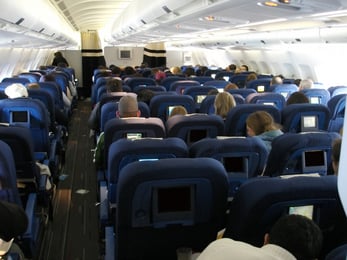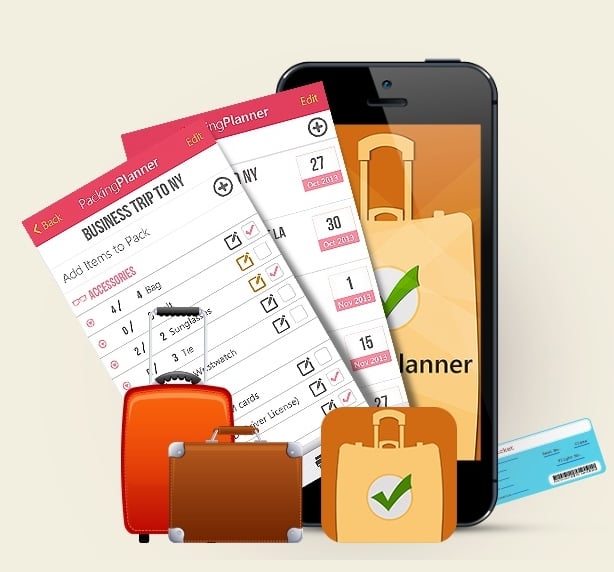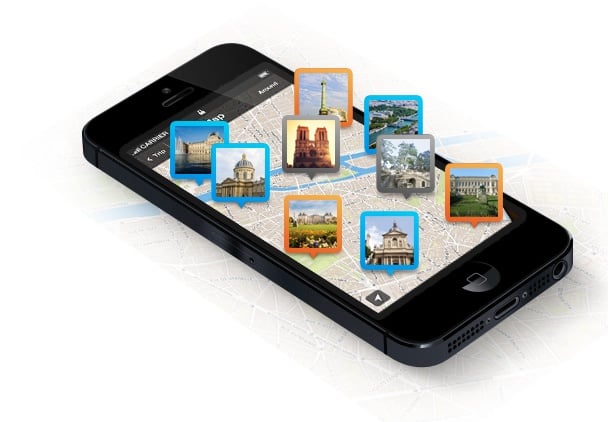Travel Abroad With A New Packing App
I have one full screen for my travel apps on my iPhone. I have so many, I even put them into groups like Air, Hotels and Navigation. I use these...
5 min read
 Randy LeGrant
:
Jul 14, 2022 9:10:08 PM
Randy LeGrant
:
Jul 14, 2022 9:10:08 PM

The 2022 travel season is just more than halfway over, and there are some important things to know about traveling abroad in the five or six months ahead. So, we put together five things to know about traveling abroad during the rest of 2022.
London's Heathrow Airport is asking airlines to stop selling any more tickets for travel this summer, as it announced a cap on passengers allowed into and out of the airport. The London Airport has cited high demand and insufficient resources that are causing delays in departed flights just trying to reach their destination or grab some luggage before they fly off again--and now there'll be even longer wait times! This newest move by Heathrow comes after Lufthansa reduced its services out of Munich AND Frankfurt; Amsterdam quickly followed suit once word got around about what was happening.
Heathrow hopes to limit passengers to 100,000 a day until September 11, as it struggles to cope with high demand and a lack of resources. Does a cap of 100,000 passengers a day seem silly? In 2018, the daily number of passengers going through Heathrow was double that ... 220,000 a day.
At London's Heathrow airport, passengers can wait hours on luggage and also on planes that are seeking slots to depart. LHR has been reporting service drops that just upset passengers simply trying to depart or grab their luggage.
So what can you do if you're planning to travel soon?
Officials at Heathrow said they are lifting the cap after September 11. And that dovetails nicely with the fall programming at The Cultural Exchange Project. Au Pairs are needed by mid-September to assist families with the start of the academic school calendar. Many teaching spots being new intakes in September as well. And families looking for tutors to help their children cope with the start of school want tutors to arrive in September or early October.
If you're going to travel abroad, travel to Europe is now THE place to be. I remember a time when the Euro was $1.70 for €1.00. Today, it's even. A €30.00 train ticket used to cost Americans $51. Today it costs $30 for the same ticket, on the same train, to the same destination.
This is the first time in 20 years since the Euro and the Dollar are at parity.
If you're going to France, Italy, Spain, or Germany to be a Homestay English Tutor, this means your weekend travel will be so much more affordable. A meal out in the south of France will cost much less than even six months ago. Will you find yourself in Paris or Rome? Check out the fashions that you might not have been able to afford before. Or, add 2 or 3 more museums to the list of things to do.
As you plan your next trip abroad, consider Europe. With the Euro now at an all-time low against the dollar, this means affordable travel for Americans like never before! It's great news when the airline stories are not so great.
Just because a fare can be canceled without incurring a fee doesn't mean you will get your money back. With most airlines, in most cases, canceling a flight will result in receiving a voucher or credit with the airline that usually expires within 12 months. A similar caveat applies to the elimination of change fees. Travelers must still pay the fare difference between the original ticket and the new one, regardless of change fees. This can be especially important for changes to flights at the last minute since close-in fares can cost much more than those booked several months in advance.
A similar caveat applies to the elimination of change fees. Travelers must still pay the fare difference between the original ticket and the new one, regardless of change fees. This can be especially important for changes to flights at the last minute since close-in fares can cost much more than those booked several months in advance.
So now that you know the rules, what all of this boils down to is that you can cancel or change your flights on most airlines if you become ill with COVID. And the newest COVID variation is a doozy. Will you get your money back? No, but you will get a credit to use on that airline for the next 12 months.
Our advice is to book on an airline where you would actually USE that credit. If you live in the US and you decide you won't travel to Italy but you're going to travel to California instead ... book on a US airline that flies to California. That way, if you have to give up your European trip, you can still use the airline credits.
Will you have to pay a difference in airfare? Yes. But if you're flexible, you can take advantage of the different "travel seasons" and book your travel during "low season" or "shoulder season." If you encounter any higher fares, they won't be as high as the summer fares.
Some of the newest changes in the EU include:
Portugal, Finland, Germany, Estonia, Italy, Cyprus, Austria, and Greece no longer have any COVID-19 travel restrictions for visitors.
Passengers flying in the EU no longer need to wear masks in airports or aboard flights. Some countries have chosen to ignore this ruling and still require masks. Check the rules with your specific airline before you fly.
Visitors to Belgium from outside the EU no longer need to show any COVID-19 paperwork to enter.
Masks are no longer mandatory in Spain and mainland Portugal, except on public transport.
For the countries where we have active programs in the EU, here is the latest:
FRANCE
France no longer requires fully vaccinated travelers to present a negative COVID-19 test to enter but you will still need to complete a passenger locator form (PLF). Non-vaccinated visitors need to present a negative PCR test taken less than 72 hours or an antigen test less than 48 hours before departure.
It is no longer mandatory to wear a mask on public transport in France.
GERMANY
All travelers can now enter Germany without showing any COVID-19 paperwork.
ITALY
Visitors to Italy are no longer required to show any COVID-19 paperwork to enter.
Masks will still be required on public transport. Although not mandatory, masks are still recommended at large indoor and crowded outdoor events. This is expected to be in place until July (this month).
The Netherlands
You must provide either proof of full vaccination or proof of recovery in the last 180 days.
SPAIN
Travelers from outside the EU and Schengen Area must be able to present proof of vaccination, a recovery certificate, or a negative test using either the EUDCC. This means unvaccinated visitors from all countries can now visit.
If you're entering Spain via land from France, you do not need to present any COVID-19 paperwork.
To be considered fully vaccinated you must have received a second or third dose in the last 9 months. Children under 12 years old are exempt when traveling with an adult.
Masks are still required in healthcare settings and on public transport.
Authenticity is not a myth… it is acceptance of things the way they actually are. The way things are at a destination might not be what one expected, but if travelers are open-minded, able to see the limitations imposed by their own expectations, and willing to embrace the reality of the local lifestyle, they can certainly experience the authentic spirit of the place. They might not like it, and they might find out that a certain place is not for them, nothing wrong with that. But the only disappointment should come from one’s own inability to get over one’s expectations.
Consumers are searching for authentic experiences and the ability to immerse themselves in the local culture. They are looking to combine the traditional tourism experience with something special that takes them off the beaten track.
We need to consider that ‘authentic’ experiences are being developed within the minds of visitors before they even arrive at a destination. In particular, there is a real desire for honest authenticity – whether it be discovering real customs or interacting with locals.
Food and drink, particularly access to local produce, is an important element of the visitor experience – indeed, our research shows that three-quarters of international visitors try local food and drink on their trip – especially in conveying this sense of authenticity.
At the heart of it all, however, is the connection with real people – and to this end, the industry is already adapting.
Enjoy the rest of 2022. There is a lot to celebrate when traveling now, although most of the travel news seems dire. We think traveling abroad in the fall will be void of issues in airports, the long queues of passengers will be much shorter and the economies of the world will continue to make travel much more affordable than ever before.

I have one full screen for my travel apps on my iPhone. I have so many, I even put them into groups like Air, Hotels and Navigation. I use these...

Where I really let myself down on New Year's resolutions is what I'm eating and how much I weigh. Ugh. By the end of August I had lost 10 pounds and...

On March 5, 2007, I wrote a Blog post entitled "You Say Goodbye And I Say Hello." I was on an airplane when I wrote the post, and it was all about...

I’m kind of at the end of a 31-day trip abroad. I’m visiting GeoVisions partners and participants in Spain, Italy and France. I have 7 more days...